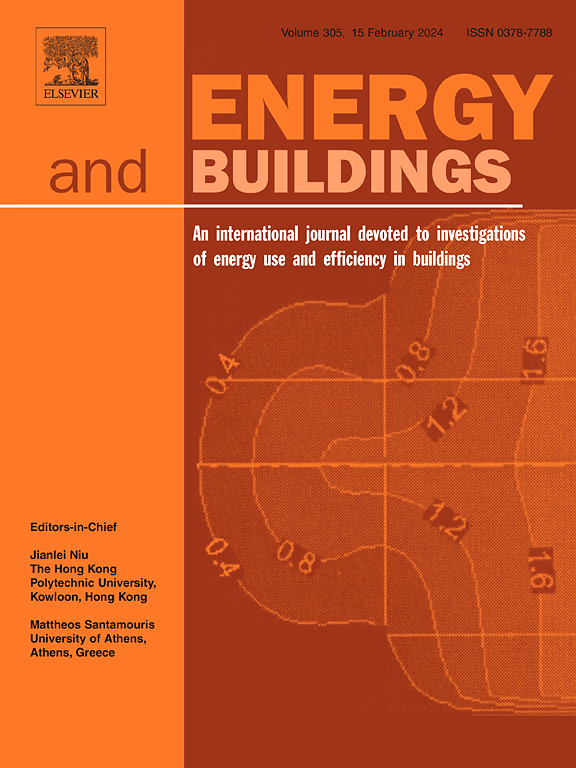A direct adaptive control architecture for buildings thermal comfort and energy efficiency optimization using multilayer perceptron neural networks and model reference learning
IF 7.1
2区 工程技术
Q1 CONSTRUCTION & BUILDING TECHNOLOGY
引用次数: 0
Abstract
This paper presents an original direct adaptive control strategy applied to a building heating system, using an intelligent control approach based on Multi-Layer Perceptron (MLP) neural networks. The main contribution of this work is the integration of a newly developed climate database, representing the coldest regions of Algeria, into the Simbad simulation environment. This enhancement significantly increases the realism and robustness of the simulation, allowing for a more accurate assessment of control performance under extreme and challenging climate conditions. The proposed control architecture follows a model reference structure in which an MLP-based adaptive controller ensures real-time adjustment to varying thermal demands and external disturbances. Unlike conventional fixed-parameter controllers, the system learns and adapts online to maintain thermal comfort while optimizing energy usage. Simulation results demonstrate the effectiveness of the proposed method in achieving precise temperature regulation and substantial energy savings. This study highlights the importance of coupling intelligent control techniques with realistic environmental data to develop energy-efficient solutions tailored to diverse climatic contexts.
基于多层感知器神经网络和模型参考学习的建筑热舒适和能效优化的直接自适应控制体系
本文提出了一种基于多层感知器(MLP)神经网络的智能控制方法,用于建筑供暖系统的直接自适应控制策略。这项工作的主要贡献是将代表阿尔及利亚最冷地区的新开发的气候数据库整合到Simbad模拟环境中。这种增强显着提高了仿真的真实感和鲁棒性,允许在极端和具有挑战性的气候条件下更准确地评估控制性能。所提出的控制体系结构遵循模型参考结构,其中基于mlp的自适应控制器确保对变化的热需求和外部干扰进行实时调整。与传统的固定参数控制器不同,系统可以在线学习和适应,在优化能源使用的同时保持热舒适。仿真结果证明了该方法的有效性,实现了精确的温度调节和大量的节能。这项研究强调了将智能控制技术与现实环境数据相结合的重要性,以开发适合不同气候背景的节能解决方案。
本文章由计算机程序翻译,如有差异,请以英文原文为准。
求助全文
约1分钟内获得全文
求助全文
来源期刊

Energy and Buildings
工程技术-工程:土木
CiteScore
12.70
自引率
11.90%
发文量
863
审稿时长
38 days
期刊介绍:
An international journal devoted to investigations of energy use and efficiency in buildings
Energy and Buildings is an international journal publishing articles with explicit links to energy use in buildings. The aim is to present new research results, and new proven practice aimed at reducing the energy needs of a building and improving indoor environment quality.
 求助内容:
求助内容: 应助结果提醒方式:
应助结果提醒方式:


